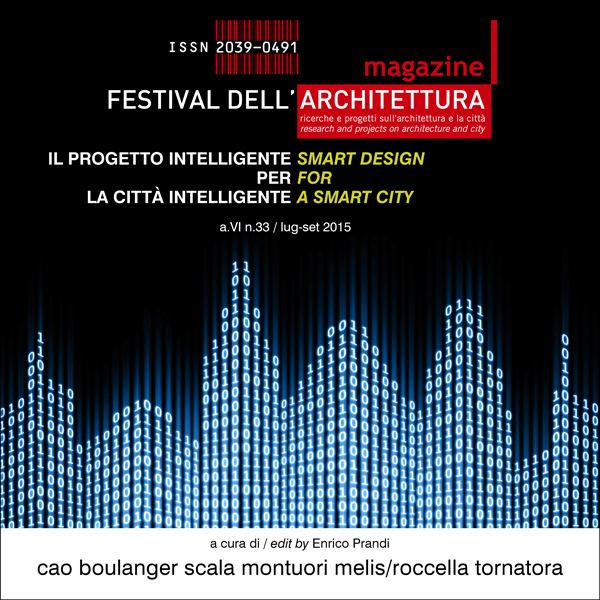Articoli
Smart City: utopia o realtà? Comprendere l’evoluzione per comprendere la trasformazione
Pubblicato 2015-07-01
Parole chiave
- Smart City,
- Utopia,
Come citare
Murielle Boulanger, S. O. (2015). Smart City: utopia o realtà? Comprendere l’evoluzione per comprendere la trasformazione. FAMagazine. Ricerche E Progetti sull’architettura E La Città, (33), 24–33. https://doi.org/10.12838/fam/issn2039-0491/n33-2015/79
Abstract
Il termine Smart City nasce come risposta ad alcuni problemi concreti che la città del XXI secolo si trova ad affrontare: aumento della popolazione, dell’inurbamento, cambiamento climatico. La città del XX secolo si è sviluppata in maniera deregolata, senza considerare quanto il “bene Terra” fosse limitato e come il suo ecosistema fragile. E’ all’interno di questo clima che il concetto di città “intelligente” nasce e si sviluppa. Lo studio si pone l’obiettivo di studiare il fenomeno partendo dall’analisi delle sue origini e dall’evoluzione storica che lo ha prodotto.Riferimenti bibliografici
- Benevolo, L. (1993), La città nella storia d’Europa, Laterza
- Bonomi, A. , Masiero, R. (2014), Dalla smart city alla smart land, Marsilio editore
- Cacciari, M. (2004), La città, Rimini: Pazzini editore
- Dall’O’, G. (2014), Smart city, Bologna: Il Mulino
- Giffinger, R., et al (2007), Ranking of European medium-sized cities, in Final Report, Vienna
- Hajer, M., Dassen, T. (2014), Smart about cities. Visualizing the Challenges for 21st Century Urbanism, nai010 publisher, June, Netherlands
- Hall, R. (2000), The vision of a Smart City, in 2nd International Life Extension Technol-ogy Workshop, September 28, Paris
- IBM (2010), A vision of smarter cities. How cities can lead the way into a prosperous and sustainable future, IBM Global Business Services, USA
- Kanter, R. M., Litow, S. S. (2009), Informed and Interconnected: a Manifesto for Smarter Cities, Working Paper 09-141, June 15
- Kruft, H.W. (1990), Le città utopiche. La città ideale dal XV al XVIII secolo fra utopia e realtà, Laterza
- Nam T, Pardo T (2009), Conceptualizing smart city with dimensions of technology, peo-ple, and institutions, in Proceedings of Annual International Conference on Digital Government Research, 2009
- Nam T, Pardo T (2011), Conceptualizing smart city with dimensions of technology, peo-ple, and institutions, in Proceedings of the 12th Annual International Digital Government Research Conference on Digital Government Innovation in Challenging Times, June 12-15, College Park, USA
- Papa, R., Gargiulo C., Galderisi, A. (2013), Towards an urban planners perspective on smart city, in TeMA – Journal of Land Use, Mobility and Environment (1)
- Partridge, H. (2004), Developing a Human Perspective to the Digital Divide in the Smart City, in proceedings ALIA 2004 Challenging Idea, September 21-24, Australia
- Rios, P. (2008), Creating "the smart city", available from: http://dspace.udmercy.edu:8080/dspace/bitstream/10429/20/1/2008_rios_smart.pdf.
- Washburn, D., Sindhu, H. (2010), Helping CIOs understand “Smart City” Initiatives, For-rester Research, USA
- Wolfram, M. (2012), Deconstructing Smart Cities: An Intertextual Reading of Concepts and Practices for Integrated Urban and and ICT Development, in proceedings REAL CORP 2012, Tagugsband, May 14-16

